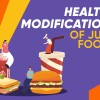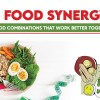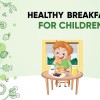
IS IT HUNGER OR JUST AN ADDICTION?
Is it hunger or just an addiction?
When the stomach is empty, it releases the hormone ghrelin which communicates with the brain’s command centre- the hypothalamus. This creates the feeling of hunger and is how we know when to eat. But, an overwhelming sensation of desire of a certain food becomes a ‘craving’. Junk food craving is not simply hunger.
What causes these cravings?
Neurotransmitters behind cravings
Certain brain chemicals induce a craving sensation in our body. Endorphins, “the happy hormones”, when released give pain relief and pleasure. Stress situation raises the level of cortisol in our body, which places the extra calories we eat in our stomach area causing belly to bulge out.
Lifestyle patterns
Eating fewer calories to reduce weight causes a decline in the metabolism and depletes insulin levels raising the urge of eating junk. Eating more of fat in the diet stimulates the secretion of endorphins. More the fat in diet, more the production of galanin, more the desire for fatty foods. Consuming more of sugars raises serotonin that also raises cravings for desserts.
Lack of sleep
When a person does not get enough sleep, the hunger hormone ‘ghrelin’ increase while the satiety hormone ‘leptin’ decreases. This also causes reduced activity in the brain that controls decision making, making us more prone to overeat.
Low blood sugars
Low blood sugar triggers a craving for high calorie foods like ice cream. An obese person, even after eating a complete meal, craves for more food.
Stress
Body produces a hormone cortisol in response to stress. When we are stressed, we are more likely drawn towards high- calorie foods such as cakes and sweets.
Nutritional deficiency
A chocolate craving may be linked to magnesium deficiency, that should be replenished by eating nuts, veggies, fruits and seeds. Calcium deficiencies makes our body crave oily foods. Have milk, cheese, green leafy veggies instead. Have more of protein rich foods such as chia seeds, meat, fish etc because it is probably because of nitrogen deficiency.
Junk food gene
A defect in the MC4R gene makes us more inclined towards fatty foods. Such people have 20-30% more chances of being obese.
Gender
Women predominantly crave sweet, fatty and energy-dense food and mean have more savory cravings.
Seasonal cravings
In the spring, we lean towards detoxifying light foods like citrus fruits. In the summer, it is cooling foods like fruits. Winter invites more warming, oily, heavy foods.
Premenstrual syndrome (PMS)
Before the onset of period every month, low levels of progesterone causes mood swings and depression. This triggers need for more comfort food which are often high in sugar content.
Dehydration
We can often mistake dehydration for hunger. Whenever you get any type of craving, drink a tall glass of water first and wait for a few minutes to see if you’re still hungry.
Dirty mouth
Food left in our mouths after eating can stimulate cravings. If you can’t brush, chew some dental gum after meals.
Candida overgrowth
Candida thrives on sugar. As it proliferates throughout our body, its demand for sugar rises and cravings can become fierce. Eat probiotic foods to eliminate sugars cravings within days.
Midnight cravings
Preference for fatty and sugary foods peaks at midnight and stays high till 4 a.m. tiredness and release of cortisol are the possible reasons behind this. When we stay awake, we are driven to compensate for the resulting blood sugar drop by eating food.
How to know that you are addicted?
- You get cravings despite being full and having just finished a nutritious meal.
- When you start eating the food you were craving, you eat much more than intended to.
- You sometimes eat to the point of feeling excessively ‘stuffed’.
- You feel guilty after eating particular foods.
- You make excuses in your head about why you should eat something that you are craving.
- You repeatedly try to quit eating certain foods but are unsuccessful.
- You hide the consumption of unhealthy foods from others.
- You are unable to control the consumption of unhealthy foods, despite knowing that they are harmful.






